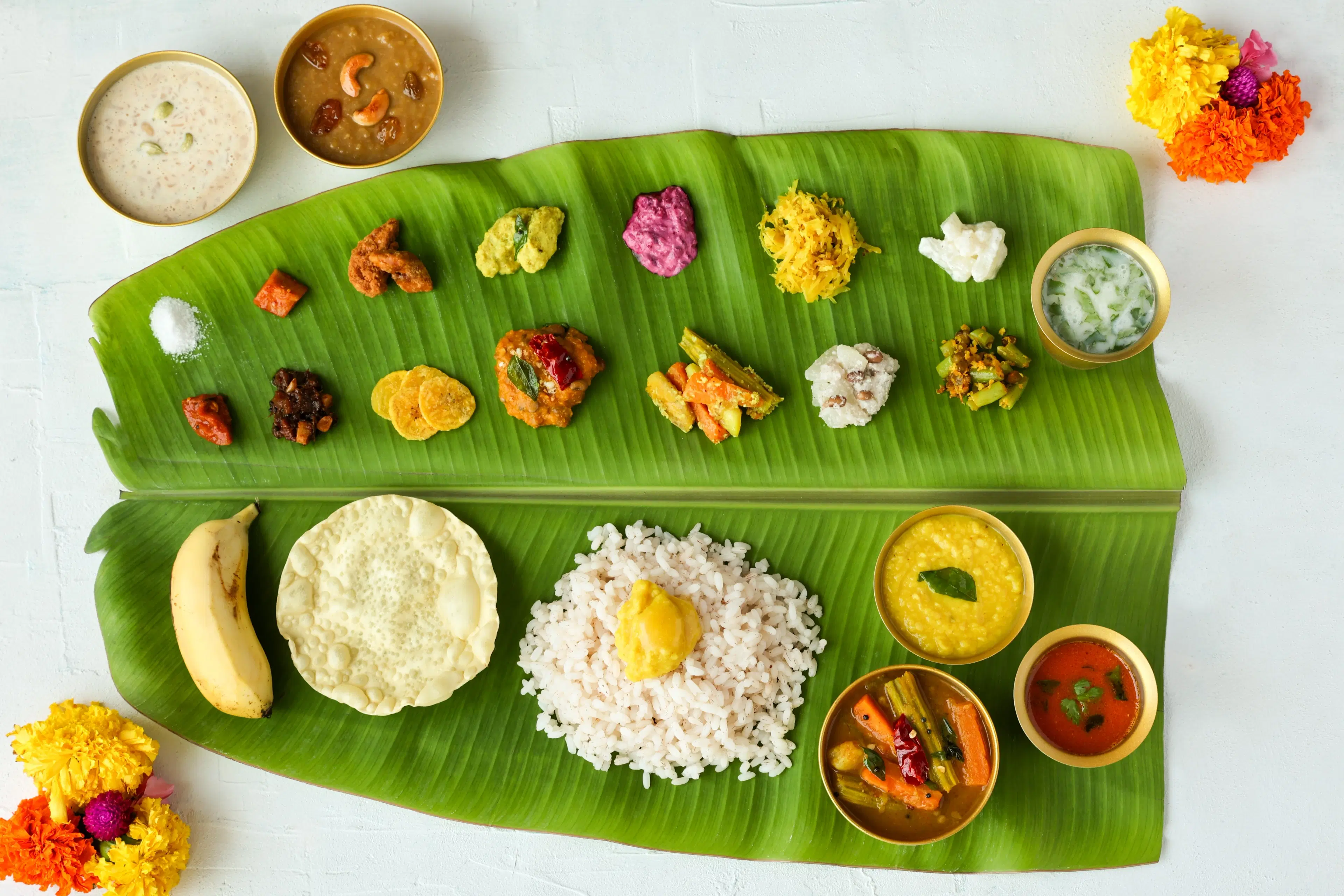
Hotels
•04 min read

The aroma of freshly ground spices fills the air as you immerse yourself in the art of Indian home-chef culinary experiences. Picture the joy of crafting authentic Indian dishes, where every meal is a narrative of tradition and passion—a journey that begins in your own kitchen. This blog unravels the secrets of traditional Indian recipes, exploring regional Indian cuisine and offering actionable home chef cooking tips that elevate your skills in preparing home-cooked Indian meals.
Indian cuisine is a vibrant tapestry woven with diverse regional flavors and cultural significance. Every state contributes its unique culinary flair, from the hearty curries of the north to the spicy flavors of the south. Traditional Indian recipes are more than just food; they are a reflection of the heritage, history, and heart of each region. When you experiment with these dishes, you're not just preparing a meal—you're keeping centuries-old traditions alive in your own home.
No discussion of Indian cooking is complete without acknowledging the magic of masalas. These spice blends are the soul of Indian cuisine, responsible for the layered flavors in every dish. Authentic Indian spice blends, when freshly ground, can transform simple ingredients into an explosion of taste. To harness this power, be mindful of sourcing high-quality spices and storing them in airtight containers to preserve their aroma and potency.
Did you know that freshly ground spices can transform the flavor profile of your dishes? Invest in a mortar and pestle or spice grinder to unlock the true essence of Indian cooking.
Successful Indian meal preparation begins with thoughtful planning. Start by laying out your ingredient list and setting a timeline that accommodates the slow-cooking techniques typical of traditional recipes. Whether you are preparing a simple dal or an elaborate biryani, balancing flavors and textures is key. Consider the interplay of spicy, sweet, sour, and savory elements, ensuring every dish sings in harmony on your dining table.
A well-equipped kitchen is indispensable for any home chef. Invest in classic tools like pressure cookers for tenderizing meats, tawas for perfect dosas, and spice boxes that keep your masalas fresh and accessible. Each tool not only saves time but also enhances the authenticity of your dishes. Knowing how to use these culinary aids effectively can mean the difference between a mediocre meal and a gastronomic masterpiece.

Indian cooking is a melting pot of techniques and ingredients that vary significantly by region. North Indian cuisine is known for its rich gravies and breads like naan and paratha, while South Indian cooking celebrates lighter fare such as the tangy rasam and crispy masala dosa. Iconic dishes like Butter Chicken and Masala Dosa illustrate these regional differences beautifully. Experimenting with each can provide a well-rounded understanding of what makes Indian cuisine so diverse and enticing.
Beyond the well-known dishes, there exists a trove of flavors from regions like Gujarat, Assam, and Kerala. For instance, the mixed vegetable delicacy Undhiyu from Gujarat, the rice-based sweet treat Pitha from Assam, and the comforting Appam from Kerala can offer fresh culinary adventures. Embracing these lesser-known recipes allows you to expand your repertoire and bring home an authentic Indian food experience every day.
Participating in Indian cooking classes is a surefire way to hone your culinary prowess. Such classes offer hands-on experience and insider secrets that can polish your technique. Whether you choose online workshops or in-person classes, learning these tips can impart greater confidence in your home chef endeavors. The structured environment of a class makes it easier to grasp complex traditions and techniques of Indian meal preparation.
Another excellent approach is to learn directly from professional chefs. Hiring a private chef or participating in culinary workshops can provide personalized guidance on mastering authentic Indian dishes. Seek out reputable experts who not only share recipes but also explain the cultural stories behind each dish, helping you to internalize the essence of Indian culinary traditions.
Creativity is a natural by-product of a deep understanding of Indian cuisine. While mastering traditional recipes, do not hesitate to put your own spin on them. Adapt ingredients to suit your taste preferences, but be cautious not to sacrifice authenticity. Substituting spices should be approached with care, using organic and local Indian ingredients whenever possible to maintain the integrity of the dish.

Creating a memorable Indian food experience goes beyond the kitchen. Think of it as curating a sensory journey for your guests. Organize themed dinner parties where every element, from the decor to the plating, speaks of Indian heritage. Thoughtful presentation can transform even a humble meal into an occasion that delights both the eyes and the palate.
Search for private chef services online or inquire at local culinary schools. Many chefs offer personalized menus and cooking services for home events.
It refers to curated recipes, tips, and techniques designed to help home chefs master culinary skills, often focused on specific cuisines like Indian.
Costs vary depending on the chef’s experience, location, and services offered. On average, a personal chef may charge between ₹5,000 to ₹15,000 per event.
Look for classes offered by chefs specializing in Indian cuisine, such as online workshops or local community classes focusing on regional dishes.
Yes, many platforms offer virtual cooking classes with Indian chefs. These classes often include live demonstrations and interactive Q&A sessions.
Indian home-chef culinary experiences are a journey of discovery, blending tradition, creativity, and passion. Through an exploration of diverse regional cuisines, the art of mastering spice blends, and the enhancement of meal preparation skills, this guide offers you a roadmap to creating authentic Indian dishes at home. Embrace these techniques and share your culinary stories, making every meal a celebration of India’s rich gastronomic heritage.